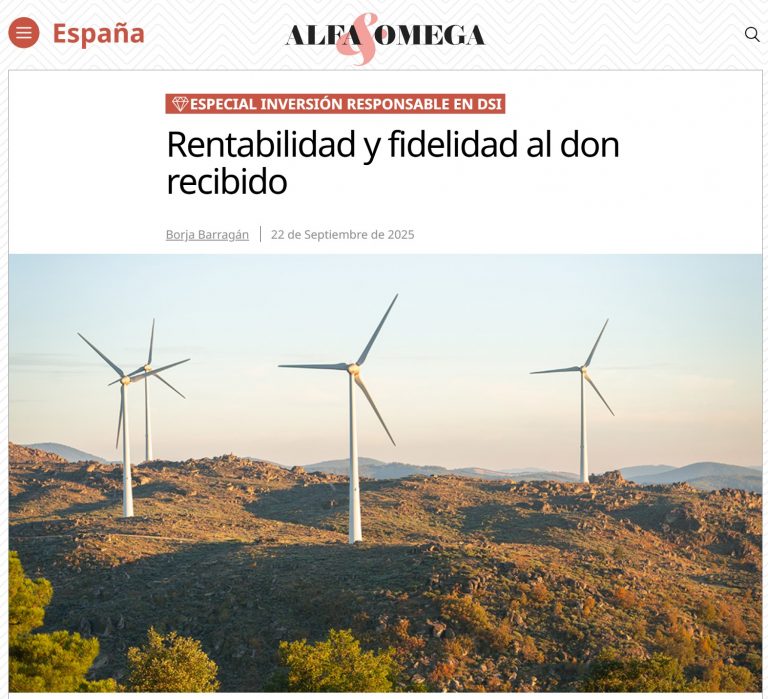Article published in Alfa & Omega – September 2025
True profitability is not measured in percentages, but in managing with coherence what God has entrusted to us. We live in immediacy. Statistics say that about 60% of those who start reading an article abandon it before the end. If you are part of the 40% who cultivate patience and seek more than the immediate, I invite you to stay: we will talk about faith and investment.
One of the hardest experiences in Christian life is realizing that what we have is not so much the fruit of our merit as it is a gift received. Are we truly owners of our talents, our intelligence, our ability to work and produce, or are we rather stewards of something entrusted to us? The answer changes the way we live. If everything is a gift, then we are called to cultivate it, multiply it, and place it at the service of others.
The same happens with investments. Our assets—whether inherited, the fruit of effort, or entrusted to us for administration—are not neutral. They can be used to build or to destroy, to serve the common good or to deny it. Money speaks, and it reveals whom we serve. The dilemma is current: do we invest according to the Christian logic, or do we allow lukewarmness to settle us on the shore of convenience?
The Church’s social teaching reminds us that the economy is always a moral sphere, and investment cannot be detached from that truth. Every financial decision supports companies and sectors. And there lies the risk: our money may end up sustaining practices that contradict the Magisterium and call our coherence into question. Does it make sense to invest? What if with my savings I am supporting or profiting from companies that actively promote abortion among their employees or openly attack religious freedom? Investing is lawful and legitimate. What makes the difference is how you do it, because we cannot live with our backs turned to the truth that every gift has been entrusted to us to bear fruit. Capital cannot be sterile, nor can it be placed at the service of what contradicts the Gospel. Increasingly, Christian investors actively seek to ensure their investments do not conflict with the promotion of life, family, human dignity, and the care of creation in the integral sense proposed by the Church.
Parables help us see this clearly. The parable of the talents goes straight to the heart of the matter. God expects us to make fruitful what He entrusts to us. It is not about burying our wealth, being paralyzed by fear, or justifying our passivity. Fidelity involves creativity, risk, and courage. A Christian is not a timid investor: he is someone who knows how to look further ahead, who dares to “put out into the deep” (duc in altum), convinced that his effort and his money can be instruments of holiness and social transformation.
That is why the decisive question is not whether we have much or little, but whether we manage with coherence. The alternative exists: it is called faithful investing. It means aligning investment with faith to avoid the inconsistency that so often clouds our witness. This is not about moralism but about freedom. Money only becomes slavery when we let it rule; when we put it in its proper place, it can become a wonderful instrument of Christian witness and service to the common good.
In the end, to paraphrase St. Teresa of Calcutta, true profitability is not measured in percentages, but in fidelity to the gift received. Investing according to the Church’s social teaching is not only possible—it is necessary. More and more Christians are choosing to do all they can, without shirking responsibility, committing themselves to their faith even in economic matters. I can only join that vital attitude and, as Julián Marías said, “for my part, I won’t be the one to hold back.”



